GENOMICS IN PRECISION ONCOLOGY XCHANGE
WEST COAST
San Francisco
February 8, 2023
Welcome to hubXchange’s West Coast Genomics in Precision Oncology 2023, bringing together executives from pharma and biotech to address and find solutions to the key issues faced in genomics-led oncology precision medicine strategies.
Discussion topics will cover Cancer Genomics, Translational Bioinformatics, Data Quality & Access and Genomics Informed Clinical Decisions.
Take advantage of this unique highly interactive meeting format designed for maximum engagement, collaboration and networking with your peers.
Venue Details – DoubleTree by Hilton San Francisco Airport Hotel, 835 Airport Boulevard, Burlingame CA 94010-9949
SNAPSHOTS OF DISCUSSION TOPICS
- Are all oncogenic drivers already known? How can we identify ‘novel’ targets with current genomics platforms?
- Next-gen technologies for scalable genetic manipulation and screening
- Liquid-biopsy and tissue-biopsy for personalized cancer genomics
- Advances in single cell methods to understand tumor biology
- Development of robust methodologies for tumor immune phenotyping in solid tumors
- Biomarker discovery and validation: From Mouse to Human, or Human to Mouse?
- Bioinformatic and computational strategies for creating knowledge
- Reusability of data analysis for decision makers
- Analysing clinical trial design and patient enrollment
- Clinical genomic real world data informed clinical decision: where are we now?
Full Xchange Agenda
Click on each track for detailed agenda
Cancer Genomics
Opening Address & Keynote Presentation
Automated NGS library preparation and workflows at scale with suboptimal samples
- FFPE Challenges and Solutions
- Automation over a wide range of input scenarios
Senior Bioinformatics Scientist, Tecan
Michael is a senior bioinformatician at Tecan and adjunct faculty at UCLA where he regularly teaches NGS-oriented bioinformatics workshops. He has experience both in on the wet- and dry-lab sides with significant experience in cancer genomics and immunology as well as metagenomics, CRISPR design and safety, medical genetics, and public health.
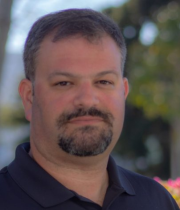
Are all oncogenic drivers already known? How can we identify ‘novel’ targets with current genomics platforms?
- Many “undruggable” driver genomic variants are known. What new approaches can we employ to target these patients?
- Are there new genomics assays that significantly deepen our understanding of oncogenicity/tumor suppression beyond variants and expression profiling?
- What in silico tools are being used to understand the functional impact of variants?
- Precision medicine is trending towards smaller and smaller population sizes that have common genomic lesions (e.g. BRCA1 mutations). How can we reverse the trend towards N-of-1s?
Senior Director, Discovery Bioinformatics, Exelixis
Christopher Szeto is a Bioinformatics and Machine-learning team leader with over 12 years of industry experience building data-driven solutions for clinical applications. His expertise is in clinically-focused R&D, gained from contributing to FDA-approved NGS products, digital pathology tools, as well as direct involvement in multiple clinical trials with a molecular diagnostic component. Chris is currently Sr. Director of Bioinformatics at Exelixis, Inc., a genomics-based oncology drug discovery company located in Alameda. Previously he held roles as Director of Bioinformatics at Zai Lab, a commercial stage biopharma based in China and the U.S., and Director of Machine Learning at NantWorks, a healthcare technology company. He obtained his Ph.D. from UCSC in 2013 on a Fulbright scholarship studying under Prof. David Haussler, during which he was involved in coordinating data and predictive analytics for the TCGA project.

Scalability in cancer microbiology
- Liquid Biopsy – as this technology matures what are the current challenges to scaling to demand?
When your patient samples and training sets consist of varying sample types (tissue, blood, etc.), what are the rate limiting steps for High Throughput processing?
Immuno Oncology, Cancer MicroBiome, Single Cell processing – considerations when scaling rapidly evolving technologies in the clinic?
Senior Bioinformatics Scientist, Tecan
Michael is a senior bioinformatician at Tecan and adjunct faculty at UCLA where he regularly teaches NGS-oriented bioinformatics workshops. He has experience both in on the wet- and dry-lab sides with significant experience in cancer genomics and immunology as well as metagenomics, CRISPR design and safety, medical genetics, and public health.

Spotlight Presentation
Changing the paradigm for liquid biopsy: Signatera as a tool for predicting therapy response
- Overview of Signatera (MRD) assay for MRD and clinical applications
- Why a tumor-informed approach using ctDNA in clinical trials
- Using ctDNA as a biomarker to expedite drug development
Staff Scientist Research and Development, Translational Medicine, Natera
Shruti serves as Staff Scientist of Research & Development in the Translational Medicine department at Natera. She brings more than 15 years of experience in the field of human genomics of complex diseases, providing strategic and scientific leadership for expanding and transforming oncology products.
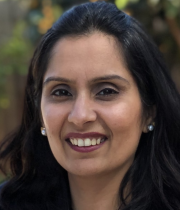
Poster Session
Overview of Abiosciences solutions and services
Abiosciences, Inc is established to harness the power of single-cell multi-omics and bioinformatics to gain molecular insights into human diseases. We offer single-cell and spatial solutions through our genomic laboratory services, bioinformatic services, Omni browser software and Omni database, as well as our patient straightification strategy solution based on single-cell data. We have been working with our pharma and biotech customers to process their precious patient samples and obtain valuable single-cell multiomic data as well as spatial transcriptome data. We also have worked with our clients to gain deeper understanding of their single-cell data, or public data either through our customized bioinformatic solutions, or
through our Omni browser/dataset. Recently we have also started to work on straightifying patients undergoing Immune Checkpoint Therapeutics (ICT) through single cell multiomics and bioinformatics. In summary, we welcome interested scientists and partners to engage with us
and find out more.
Director of Genomics, Abiosciences
Jasmine Chen Ph.D. is the Director of Genomics at Abiosciences, Inc, leading a team on multi-
omics single cell genomics and spatial genomics in preclinical and clinical studies. Dr. Chen
received her Ph.D. in Cell Biology and Pathology at Columbia University in New York, and
completed her postdoctoral training at University of California, San Francisco. Prior to joining
Abiosciences, Dr. Chen worked in the Next Generation Sequencing Core at Genentech, Inc,
where she evaluated single cell technologies and contributed to its broader applications for
discovery research and biomarker identification.
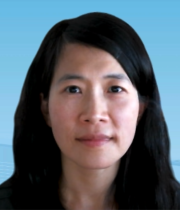
Associate Director of Sales & Marketing, Abiosciences
Derek leads the US sales and marketing team at Abiosciences. He is a molecular biologist specializing in NGS applications, including single-cell transcriptomics, and immune profiling. Derek received his Master’s from California State University and has collaborated on several studies focused on using transcriptomics and epigenomics to profile rare diseases.
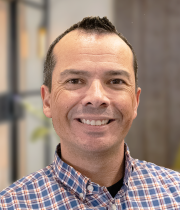
Next-gen technologies for scalable genetic manipulation and screening
- What lessons and actionable discoveries have been gained through large-scale, consortium-driven cancer gene dependency mapping efforts?
- What are the most effective gene perturbation technologies for enabling today’s researchers as they plan their own functional genomics screens?
- How are advances in genome sequencing methods enhancing functional genomics? What are the current limits of those methods, and what are likely to be the near-term breakthroughs?
Distinguished Scientist, Genentech
During his graduate studies with Phillip Zamore at UMass Medical School, Ben unraveled several key mechanisms that characterize the RNAi pathway and, at the same time, increased our understanding of the specificity limits of RNAi. After receiving his PhD, Ben went to Michael Levine’s lab at UC Berkeley as an American Cancer Society Postdoctoral Fellow. There, he developed an enhanced Drosophila RNAi system for in vivo applications, further refined the in vivo specificity of RNAi, and also identified novel aspects of small RNA biogenesis and mRNA structure/expression using various model organisms. Following his postdoc, Ben joined the Molecular Biology Department at Genentech, Inc. There, he oversees separate research teams focused on developing technologies to better model human disease or therapeutic intervention in vitro and in vivo. In addition, his teams contribute nucleic acid and genome engineering expertise to support Genentech’s mRNA, Cell, and Gene Therapy research programs.
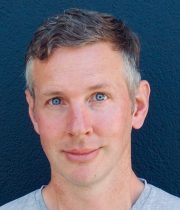
16:45 – 17:45
Liquid-biopsy and tissue-biopsy for personalized cancer genomics
- What are the major challenges in personalized cancer genomics in therapeutic target selection and efficacy monitoring in precision medicine?
- What technological advancements have helped us interrogate these challenges with biopsies from complimentary sources?
- How can we validate the finding from liquid biopsy to support clinical trial?
- What can we learn from liquid and tissue biopsy to make informed decision?
Director of Bioinformatics,
Amplify-Bio
Sam joined Amplify-Bio recently as director of bioinformatics, bringing years of experience in cancer genomics in various biopharmaceutical companies. Previously at PACT Pharma, Sam built computational biology team, led the bioinformatics efforts in IND filing and clinical trial in developing personalized TCR-T cell therapy. Prior to PACT, Sam held various positions with increasing responsibilities at Amgen where he contributed to drug discovery and target identification across multiple therapeutic areas in immunoncology and metabolic disorders. Sam has extensive experience in leading multi-functional team to develop cloud based NGS pipeline to support neoantigen-TCR based drug development.
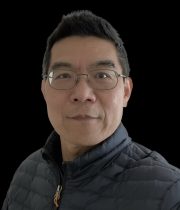
Translational Bioinformatics
Opening Address & Keynote Presentation
Automated NGS library preparation and workflows at scale with suboptimal samples
- FFPE Challenges and Solutions
- Automation over a wide range of input scenarios
Senior Bioinformatics Scientist, Tecan
Michael is a senior bioinformatician at Tecan and adjunct faculty at UCLA where he regularly teaches NGS-oriented bioinformatics workshops. He has experience both in on the wet- and dry-lab sides with significant experience in cancer genomics and immunology as well as metagenomics, CRISPR design and safety, medical genetics, and public health.

Advances in single cell methods to understand tumor biology
- What are the key challenges in preclinical and translational bioinformatics
- How do we characterize ffpe samples at single cell level
- How can we characterize gene edits using NGS and single-cell technologies to create potent and safer therapies.
- What are the advancements in technologies that can help us interrogate tumor heterogeneity at a single-cell level
Associate Director, Bioinformatics, Nkarta Therapeutics
Sombeet is the head of computational biology at Nkarta. Nkarta is a clinical-stage biotechnology company advancing the development of allogeneic natural killer (NK) cell therapies for cancer. Sombeet has extensive experience leading multiple informatics software and computational biology products to market. He is a strategic leader, an inventor, and developer of many industry-first tools and analysis methods. Previously he was a Bioinformatics lead at Mission Bio and ThermoFisher Scientific.
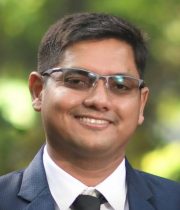
Getting de-centralized testing into routine clinical oncology
- The potential for de-centralized liquid biopsy early cancer detection through resistance and recurrence applications
- Enabling ongoing disease molecular assessment and treatment management based upon molecular endpoints using ctDNA assays
- Allowing for more treatment options for patients and expanded utility of drug therapies at earlier disease stages
President and Chief Executive Officer, Stilla Technologies
Philippe is an executive life sciences leader with over 25 years’ experience gained through leadership roles at global organizations serving drug discovery and development organizations and with his strong biomarker landscape knowledge has a proven track record of influencing both translational and clinical programs.
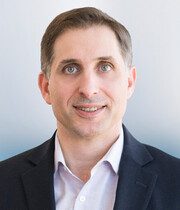
Networking Lunch
Spotlight Presentation
Changing the paradigm for liquid biopsy: Signatera as a tool for predicting therapy response
- Overview of Signatera (MRD) assay for MRD and clinical applications
- Why a tumor-informed approach using ctDNA in clinical trials
- Using ctDNA as a biomarker to expedite drug development
Staff Scientist Research and Development, Translational Medicine, Natera
Shruti serves as Staff Scientist of Research & Development in the Translational Medicine department at Natera. She brings more than 15 years of experience in the field of human genomics of complex diseases, providing strategic and scientific leadership for expanding and transforming oncology products.

Poster Session
Overview of Abiosciences solutions and services
Abiosciences, Inc is established to harness the power of single-cell multi-omics and bioinformatics to gain molecular insights into human diseases. We offer single-cell and spatial solutions through our genomic laboratory services, bioinformatic services, Omni browser software and Omni database, as well as our patient straightification strategy solution based on single-cell data. We have been working with our pharma and biotech customers to process their precious patient samples and obtain valuable single-cell multiomic data as well as spatial transcriptome data. We also have worked with our clients to gain deeper understanding of their single-cell data, or public data either through our customized bioinformatic solutions, or
through our Omni browser/dataset. Recently we have also started to work on straightifying patients undergoing Immune Checkpoint Therapeutics (ICT) through single cell multiomics and bioinformatics. In summary, we welcome interested scientists and partners to engage with us
and find out more.
Director of Genomics, Abiosciences
Jasmine Chen Ph.D. is the Director of Genomics at Abiosciences, Inc, leading a team on multi- omics single cell genomics and spatial genomics in preclinical and clinical studies. Dr. Chen received her Ph.D. in Cell Biology and Pathology at Columbia University in New York, and completed her postdoctoral training at University of California, San Francisco. Prior to joining Abiosciences, Dr. Chen worked in the Next Generation Sequencing Core at Genentech, Inc, where she evaluated single cell technologies and contributed to its broader applications for
discovery research and biomarker identification.

Associate Director of Sales & Marketing, Abiosciences
Derek leads the US sales and marketing team at Abiosciences. He is a molecular biologist specializing in NGS applications, including single-cell transcriptomics, and immune profiling. Derek received his Master’s from California State University and has collaborated on several studies focused on using transcriptomics and epigenomics to profile rare diseases.

Development of robust methodologies for tumor immune phenotyping in solid tumors
- What are the challenges we face today in tumor immune phenotyping and association with clinical response?
- How do we use the current technologies and bioinformatics analyses to accurately identify specific cell types (quantity and spatial distribution) in the tumor microenvironment?
- How do we validate our findings in the clinical settings?
- What technologies and analytics do we need to develop in the clinical biomarker space?
Senior Director of Immunology and Translational Sciences, Actym Therapeutics
Akshata Udyavar is Senior Director of Immunology and Translational Sciences at Actym Therapeutics. Dr. Udyavar has over 16 years of research experience in bench and translational science including immunology, cancer systems biology, target and biomarker discovery as well as development in immuno-oncology. Prior to Actym, she was Director of Late Stage Research at InstilBio, an autologous TIL therapy biotech in Thousand Oaks where she was the non-clinical program lead on the successful clearance of the ITIL-306 IND, their first genetically engineered Costimulatory Antigen Receptor autologous TIL (CoStAR-TIL) therapy recognizing folate receptor alpha. Prior to Instil, she grew in ranks at Arcus Biosciences to Research Fellow (Associate Director) where she built the bioinformatics pipeline and translational infrastructure for integration and analysis of early clinical biomarker data for the entire company. She led the indication prioritization and early preclinical and clinical biomarker analyses for several of Arcus’s molecules – CD73 inhibitor Quemliclustat, Adenosine A2a/b receptor antagonist Etrumadenant, TIGIT antibody Domvanalimab. Prior to Arcus, she was an Associate Scientist at Genentech where she worked on the biomarker sub-teams for atezolizumab, xeloda and avastin and led the clinical biomarker analyses for several Ph1-3 clinical trials. She received her Masters in Biomedical Sciences at UT Memphis and did her thesis work at St. Jude Children’s Hospital on adoptive TCR T cell therapy in multiple sclerosis. She received her PhD in Chemical and Physical Biology at Vanderbilt University where she adapted bioinformatics, computational modeling and bench science approaches to discovery of novel targets and biomarkers in small cell lung cancer.
She also received a Certificate in Molecular Medicine, a joint program with Vanderbilt University Medical Center and Howard Hughes Medical Institute and obtained clinical research experience.
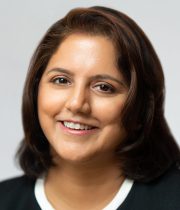
16:45 – 17:45
Biomarker discovery and validation: From Mouse to Human, or Human to Mouse?
- What are the challenges you face in selecting animal models for studying your drugs/diseases?
- What can we learn from our preclinical models of disease to bring into human clinical trials?
- How can we validate and extend our findings from clinical trials?
- How can bioinformatics help us navigate these issues?
Senior Vice President of Quantitative and Computational Biology, RAPT Therapeutics
Paul joined RAPT Therapeutics in 2016, bringing years of experience building and leading high-performance technical groups in various biopharmaceutical organizations. Paul was previously Director of Research and Head of the Genome Analysis Unit at Amgen, Inc. where he developed and implemented multiple high-throughput platforms for drug discovery and target identification across all therapeutic areas. Prior to Amgen, Paul held scientific and leadership positions in several smaller companies which enabled him to exercise his passion for creating novel technology platforms to enable drug discovery.
Paul received his B.S. in Genetics and Development from the University of Illinois at Champaign-Urbana before performing graduate research at the Dana-Farber Cancer Institute and earning his Ph.D. in Immunology from Harvard University. Paul completed postdoctoral work in Neuroscience at the University of California, San Diego.
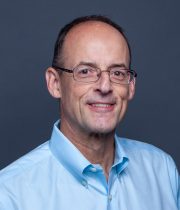
Data Quality & Access
Opening Address & Keynote Presentation
Automated NGS library preparation and workflows at scale with suboptimal samples
- FFPE Challenges and Solutions
- Automation over a wide range of input scenarios
Senior Bioinformatics Scientist, Tecan
Michael is a senior bioinformatician at Tecan and adjunct faculty at UCLA where he regularly teaches NGS-oriented bioinformatics workshops. He has experience both in on the wet- and dry-lab sides with significant experience in cancer genomics and immunology as well as metagenomics, CRISPR design and safety, medical genetics, and public health.

09:05 – 10:05
Bioinformatic and computational strategies for creating knowledge
- How do we ensure that computational analyses contribute productively to knowledge generation within research areas?
- How do we develop and disseminate computational expertise within analytical teams?
- What strategies work for engaging and enabling experimental teams to be partners in knowledge generation?
Head of Computational Biology, Maze Therapeutics
Russell Bainer, Ph.D Leads the Computational Biology group at Maze Therapeutics, a company focused on using integrative human genetic and functional genomics methods to develop therapies for genetic diseases. At Maze, his group plays important roles in diverse experimental, analytical, and methodological efforts to develop and extend experimental biology and drug discovery applications. Dr. Bainer’s research is broadly focused on methodological innovation in functional genomics experiments, with a particular focus on epigenetic technologies and pooled screening applications.
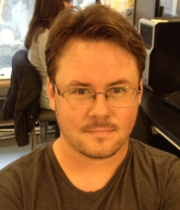
Cancer Genomics Topic
Boosting the IO within bIOmarker analysis and precision medicine: The NeXT generation of comprehensive molecular characterization of tissue and liquid biopsy
- Rapid advances in Next Generation Sequencing (NGS) technologies have revolutionized progress in personalized cancer vaccines, precision medicine and biomarker discovery and MRD detection.
- Despite many advancements there are still challenges that must be addressed for both tissue profiling and liquid biopsy approaches.
- This roundtable discussion will review various prevailing issues and strategies facing the field.
Manager, Field Applications Scientist, Personalis
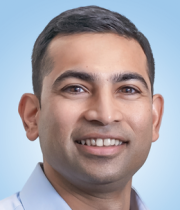
Field Application Scientist, Personalis

Spotlight Presentation
Changing the paradigm for liquid biopsy: Signatera as a tool for predicting therapy response
- Overview of Signatera (MRD) assay for MRD and clinical applications
- Why a tumor-informed approach using ctDNA in clinical trials
- Using ctDNA as a biomarker to expedite drug development
Staff Scientist Research and Development, Translational Medicine, Natera
Shruti serves as Staff Scientist of Research & Development in the Translational Medicine department at Natera. She brings more than 15 years of experience in the field of human genomics of complex diseases, providing strategic and scientific leadership for expanding and transforming oncology products.

Poster Session
Overview of Abiosciences solutions and services
Abiosciences, Inc is established to harness the power of single-cell multi-omics and bioinformatics to gain molecular insights into human diseases. We offer single-cell and spatial solutions through our genomic laboratory services, bioinformatic services, Omni browser software and Omni database, as well as our patient straightification strategy solution based on single-cell data. We have been working with our pharma and biotech customers to process their precious patient samples and obtain valuable single-cell multiomic data as well as spatial transcriptome data. We also have worked with our clients to gain deeper understanding of their single-cell data, or public data either through our customized bioinformatic solutions, or
through our Omni browser/dataset. Recently we have also started to work on straightifying patients undergoing Immune Checkpoint Therapeutics (ICT) through single cell multiomics and bioinformatics. In summary, we welcome interested scientists and partners to engage with us
and find out more.
Director of Genomics, Abiosciences
Jasmine Chen Ph.D. is the Director of Genomics at Abiosciences, Inc, leading a team on multi-omics single cell genomics and spatial genomics in preclinical and clinical studies. Dr. Chen
received her Ph.D. in Cell Biology and Pathology at Columbia University in New York, and completed her postdoctoral training at University of California, San Francisco. Prior to joining Abiosciences, Dr. Chen worked in the Next Generation Sequencing Core at Genentech, Inc, where she evaluated single cell technologies and contributed to its broader applications for
discovery research and biomarker identification.

Associate Director of Sales & Marketing, Abiosciences
Derek leads the US sales and marketing team at Abiosciences. He is a molecular biologist specializing in NGS applications, including single-cell transcriptomics, and immune profiling. Derek received his Master’s from California State University and has collaborated on several studies focused on using transcriptomics and epigenomics to profile rare diseases.

Reusability of data analysis for decision makers
- Who are your customers (internal or external to your organization) for oncology ‘omics data analysis results?
- How do your customers find data analysis results they need?
- What is the scope of results used by decision-makers and is it comprehensive enough?
- What information systems help deliver analysis results?
- What features are lacking in tools to find and deliver analysis results?
Senior Director, Bioinformatics Scientific Strategy, Exelixis
Hugh is a strategic thinker with 25 years’ experience leading bioinformatics and computational biology. After earning a Biophysics Ph.D. from UC Berkeley he joined Dr. Peter Small’s team at Stanford, focusing on tuberculosis genomics and epidemiology research. Hugh built and headed the Department of Computational Biology at Berlex Biosciences, providing collaborative services for Immunology, Oncology, Dermatology, and Cardiovascular research. He founded a consultancy, co-founded a bioinformatics CRO, Knowledge Synthesis Inc., led a bioinformatics software development team at LBNL, and currently is Bioinformatics Scientific Strategy Director at Exelixis. Hugh’s areas of expertise include statistical pathway analysis, data integration, and data visualization.
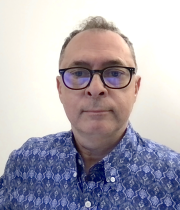
Genomics Informed Clinical Decisions
Opening Address & Keynote Presentation
Automated NGS library preparation and workflows at scale with suboptimal samples
- FFPE Challenges and Solutions
- Automation over a wide range of input scenarios
Senior Bioinformatics Scientist, Tecan
Michael is a senior bioinformatician at Tecan and adjunct faculty at UCLA where he regularly teaches NGS-oriented bioinformatics workshops. He has experience both in on the wet- and dry-lab sides with significant experience in cancer genomics and immunology as well as metagenomics, CRISPR design and safety, medical genetics, and public health.

- Industry appetite for clinical trial designs with increased probability of success
- How to stratify patient populations based on ‘omic network signals.
- How to use transcriptomics during clinical trials to assess target engagement and efficacy
Head of Computational Biology, Verge Genomics
Dr. Victor Hanson-Smith is the Head of Computational Biology at Verge Genomics. Since joining Verge, Victor built a proprietary computational platform that integrates multiple ‘omic layers from human tissue with machine learning in order to identify therapeutic gene targets, biomarkers, and guide clinical design. Victor is a world leader in mathematical modeling of eukaryotic genome evolution and function, and has 18 years experience working at the intersection of computer science and biology. He has authored in top journals including Nature and Science. Victor received his Ph.D. in Computer and Information Science from the University of Oregon, and he completed an NIH postdoctoral fellowship in evolutionary genomics at UCSF. Additionally, Victor is a full-stack software engineer with extensive experience building genomics pipelines, scalable databases, and supercomputing simulations.
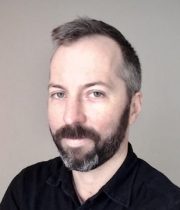
Mining bioinformatics data to augment cancer research and therapeutics
- Data types availability and challenges
- Available Bioinformatics data mining approaches
- Application areas for bioinformatics data in cancer research and therapeutics
Associate Vice President – Bioinformatics, Excelra
Dr. Chandra Sekhar Pedamallu comes with extensive experience in Bioinformatics and Computational Biology specializing in cancer genomics. Before joining Excelra, Chandra was associated with Sanofi Inc., identifying novel drug targets in Oncology (Molecular and Immuno-oncology). Prior to Sanofi, he was at Dr. Meyerson Lab, Dana-Farber Cancer Institute, and a visiting scientist at The Broad Institute of MIT and Harvard. During his 6-year tenure at Harvard, he led microbial analysis, pathogen discovery projects in cancer and other diseases. He has contributed substantially to over a dozen projects under the auspices of the Cancer Genome Atlas (TCGA).
Chandra holds a Ph.D. in Systems Engineering (area of research : Global Optimization) from School of Mechanical and Aerospace Engineering, Nanyang Technological University, Singapore. He has co-authored over 80 manuscripts, published in highly reputed journals including Nature, Nature Genetics, Science, Cell, PNAS, etc., and has been inducted as a Fellow of the Royal Society of Biology (FRSB).

Networking Lunch
Spotlight Presentation
Changing the paradigm for liquid biopsy: Signatera as a tool for predicting therapy response
- Overview of Signatera (MRD) assay for MRD and clinical applications
- Why a tumor-informed approach using ctDNA in clinical trials
- Using ctDNA as a biomarker to expedite drug development
Staff Scientist Research and Development, Translational Medicine, Natera
Shruti serves as Staff Scientist of Research & Development in the Translational Medicine department at Natera. She brings more than 15 years of experience in the field of human genomics of complex diseases, providing strategic and scientific leadership for expanding and transforming oncology products.

Poster Session
Overview of Abiosciences solutions and services
Abiosciences, Inc is established to harness the power of single-cell multi-omics and bioinformatics to gain molecular insights into human diseases. We offer single-cell and spatial solutions through our genomic laboratory services, bioinformatic services, Omni browser software and Omni database, as well as our patient straightification strategy solution based on single-cell data. We have been working with our pharma and biotech customers to process their precious patient samples and obtain valuable single-cell multiomic data as well as spatial transcriptome data. We also have worked with our clients to gain deeper understanding of their single-cell data, or public data either through our customized bioinformatic solutions, or
through our Omni browser/dataset. Recently we have also started to work on straightifying patients undergoing Immune Checkpoint Therapeutics (ICT) through single cell multiomics and bioinformatics. In summary, we welcome interested scientists and partners to engage with us
and find out more.
Director of Genomics, Abiosciences
Jasmine Chen Ph.D. is the Director of Genomics at Abiosciences, Inc, leading a team on multi-omics single cell genomics and spatial genomics in preclinical and clinical studies. Dr. Chen received her Ph.D. in Cell Biology and Pathology at Columbia University in New York, and
completed her postdoctoral training at University of California, San Francisco. Prior to joining Abiosciences, Dr. Chen worked in the Next Generation Sequencing Core at Genentech, Inc, where she evaluated single cell technologies and contributed to its broader applications for discovery research and biomarker identification.

Associate Director of Sales & Marketing, Abiosciences
Derek leads the US sales and marketing team at Abiosciences. He is a molecular biologist specializing in NGS applications, including single-cell transcriptomics, and immune profiling. Derek received his Master’s from California State University and has collaborated on several studies focused on using transcriptomics and epigenomics to profile rare diseases.

- Current practices on using clinical genomic real world data for clinical decision
- Challenges for clinical genomic real world data informed clinical decision
- Future potentials and new trends of clinical genomic real world data
Bioinformatics Lead on Immuno-Oncology Drug Development, Arcus Biosciences
Ning is a bioinformatics scientist at Arcus Biosciences, where he is responsible for preclinical and clinical studies in multiple immune-oncology drug programs. Notably, Ning supported bioinformatics analysis for the first A2AR/A2BR inhibitor (Etrumadenant, now in phase 2 clinical trial). He is leading couple of precision immune-oncology initiates to support immune- oncology agent clinical development. Ning holds a PhD in Bioinformatics from UCLA.

